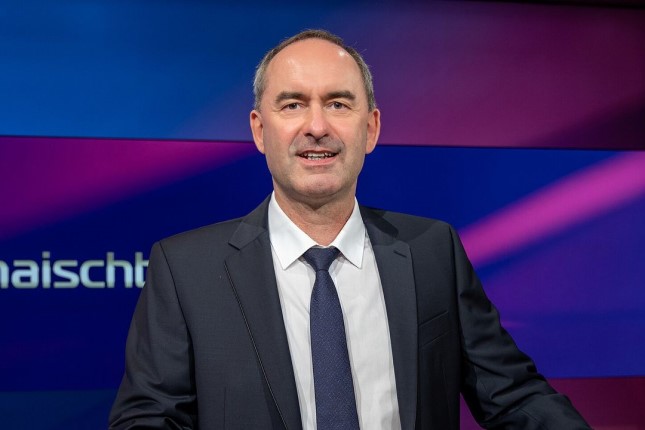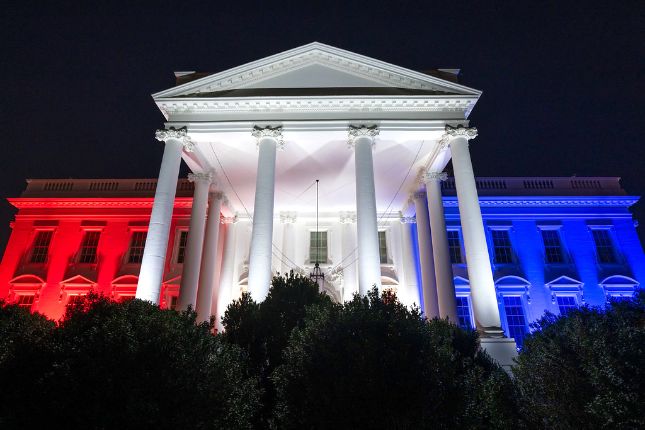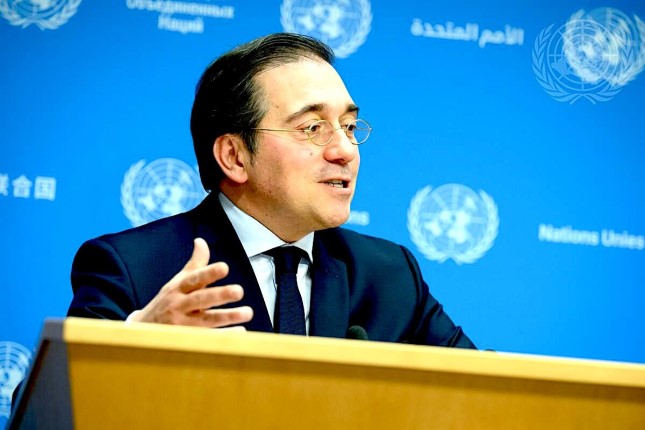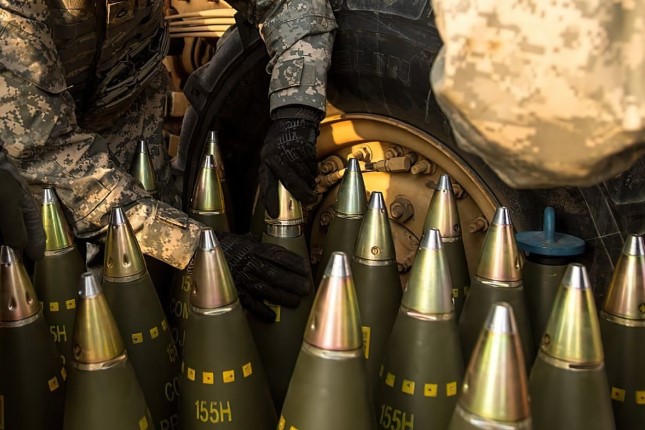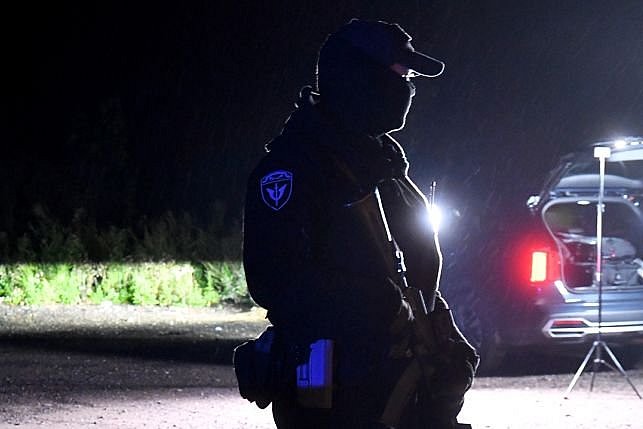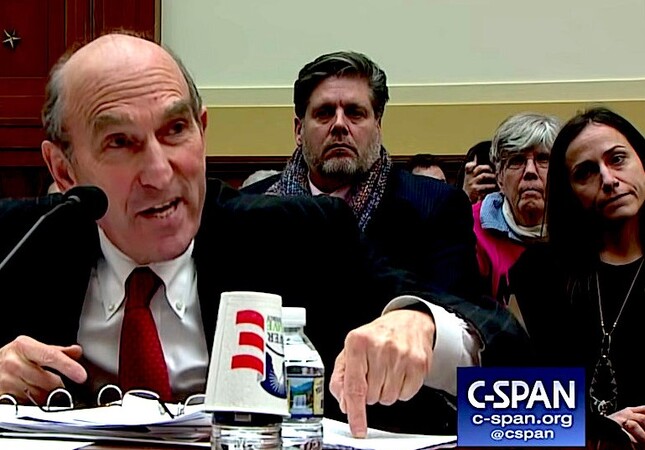It is now clear that the Free Voters’ leader was a neo-Nazi as a youth and defends it to this day.
Bavarian State Premier Markus Söder (Christian Social Union, CSU) nevertheless decided at noon on Sunday that Aiwanger would remain in office. He had been under considerable pressure to dismiss him before the state elections in five weeks.
Söder’s decision in favour of Aiwanger also means he is likely to continue working with him after the election. Since the beginning of the election campaign, Söder had explicitly spoken out in favour of continuing the governing alliance of the CSU and the Free Voters, which he describes as a “bourgeois coalition.” His keeping Aiwanger in office is a clear signal that right-wing extremism is not an obstacle to holding the highest government positions in Germany.
The Aiwanger case
On August 25, the Süddeutsche Zeitung reported on an antisemitic leaflet circulated in Aiwanger’s school, the Burkhart Gymnasium in Mallersdorf-Pfaffenberg, during the 1987/88 school year. The school administration identified Aiwanger as the author of the inflammatory pamphlet, several copies of which were found in his bag. As punishment, he had to give a lecture on the Nazi era.
The leaflet is a cynical stringing together of the vilest inflammatory neo-Nazi slogans. Titled “Federal competition: Who is the greatest traitor to the fatherland?” it invites those eligible to take part—“Anyone who is German and resides on German soil”—to report to “the Dachau concentration camp for an interview.”
The first prize promised is a “free flight through the chimney at Auschwitz.” Other prizes are a “lifelong stay in a mass grave,” a “free shot in the neck,” a “free beheading by guillotine” and a “ticket to the eternal hunting grounds (place of fulfilment also the Auschwitz pleasure quarter and subcamps).” The winners of prizes 7-1,000 are threatened with “a night in the Gestapo cellar, then off to Dachau.” The inflammatory leaflet ends by wishing the winners to “have a good time.”
The title of the leaflet obviously referred to the “History Competition of the Federal President,” which has taken place every two years since 1973 and is meant to encourage pupils to deal with German history. At the time, at least one pupil from Aiwanger’s high school, Roman Serlitzky, took part in the competition.
Serlitzky submitted his work on the “Jewish cemetery near Mallersdorf-Pfaffenberg” in February 1989 and included a copy of Aiwanger’s inflammatory leaflet as a “negative example” of how “other young people of the same age deal with the Third Reich,” without, however, mentioning the name of the author. Buried in the cemetery are 67 concentration camp prisoners who died in spring 1945 during a death march from Buchenwald concentration camp.
The “traitors to the fatherland” to whom the leaflet offered Auschwitz, guillotine and a shot in the neck as a “prize” were thus meant to be participants in the history competition who investigated and uncovered crimes of the Nazi regime.
Aiwanger reacted to the Süddeutsche’s publication by denying everything, speaking of a “smear campaign” and threatening the newspaper with legal action and claims for damages. When this line could no longer be held, he admitted that one or more copies of the leaflet had been found in his pocket. However, he denied having written the text himself. He knew the author but did not want to “blow the whistle” on him, he explained.
The following day, Aiwanger’s brother Helmut, who is a year older and had attended the same high school, spoke up. He claimed to have written the leaflet himself, out of anger that he had been left behind. The leaflets had ended up in his brother Hubert’s pocket because he had “collected them again” to “de-escalate.”
This flimsy excuse fell apart in no time. Numerous eyewitnesses came forward who believed that the politician Aiwanger had written the diatribe, not his brother. The latter was considered a “cool” guy with long hair, while Hubert’s appearance was with strictly parted hair and a moustache. Helmut wrote an essay about the Rolling Stones, Hubert about a Bavarian fighter pilot from the First World War.
Journalists from Der Spiegel and the Süddeutsche each tracked down about two dozen eyewitnesses, many of whom confirmed that Hubert Aiwanger was considered a neo-Nazi at school.
“Several former pupils and teachers remember Hubert Aiwanger as a strict conservative to right-wing radical,” Spiegel reports. He had defended Hitler’s Wehrmacht (armed forces) and declared that it had “behaved honourably.” He had occasionally given a “Sieg Heil” salute and had made a disgusting joke about Jews after a visit to a concentration camp memorial.
A former schoolmate recalled seeing Hitler’s Mein Kampf in Hubert Aiwanger’s schoolbag and him holding the book in his hand once. Another schoolmate swore an oath that the racist slogan “Schwarzbraun ist die Negersau” (“Black-brown is the negro sow”) was written on the inside of a folder Hubert had with him at school.
Stephan Winnerl, who was the student representative at the Burkhart high school at the time, told the Süddeutsche about swastika graffiti in the school toilets. The headmaster had confirmed to him that Hubert Aiwanger had been found guilty of this. Possibly that is why he was immediately suspected of authoring the flyer and the copies found in his pocket.
A classmate of Aiwanger, who wished to remain anonymous, assured the Süddeutsche: “He was a Nazi through and through.” He had often sung the “Horst Wessel Song,” the banned anthem of the Nazi Party.
On August 31, Hubert Aiwanger finally read out a short statement at a press conference in which he made a pro forma apology. “I deeply regret if I have hurt feelings through my behaviour in relation to the pamphlet in question or further accusations against me from my youth,” he said. His apology was “first and foremost to all the victims of the Nazi regime, their surviving dependents and all those involved and the valuable remembrance work.”
At the same time, Aiwanger intensified the attacks on his critics. At election campaign appearances in beer tents in front of cheering supporters, he stylised himself as the persecuted victim of a “smear campaign” who was to be “politically and personally finished off.” He continued to deny having written the agitational leaflet and mocked the Jewish victims of the Nazi regime, accusing his critics in an interview in Die Welt of abusing “the Shoah for party political purposes.”
Political shift to the right
State Premier Söder (CSU) justified his decision to keep Aiwanger in office by saying that it was his impression that Aiwanger had credibly distanced himself from his serious youthful mistakes. Furthermore, there was no proof that Aiwanger had created or distributed the leaflet. He had given Aiwanger the “serious and well-intentioned advice: even if all these things happened a long time ago, it is important to show remorse and humility.”
This is absurd. Before Söder’s decision, Aiwanger had answered 25 questions in writing about the events of 1987/88, which the latter had submitted to him in order to gain time. His answer to almost all the questions was: “Details not remembered,” “that escapes me,” “that is not known to me,” “I can’t remember that,” etc.
While Söder was still briefing the press, Aiwanger paraded in a beer tent in Keferloh in front of cheering supporters: “I predict that Bavaria will continue to be governed by the CSU and the Free Voters. ... We will be strengthened by this campaign.” He said the coverage of him was a “dirty piece of work.”
In reality, the CSU already knew in 2018, when it formed a coalition with the Free Voters, who it was becoming involved with. That Aiwanger held far-right views was never a secret.
As early as 2008, shortly after he had taken over the chairmanship of the Free Voters and they had entered the Landtag (state parliament) for the first time, Aiwanger had personally approached the then CSU Prime Minister Horst Seehofer because a CSU member had insisted he “urgently needed to get hold of Hubert Aiwanger’s school file” in order to “politically destroy” him with its contents. Aiwanger wanted to know from Seehofer whether he was being investigated and gave him the name of the CSU member in question. Seehofer assured him that this was not the case.
“Did the CSU therefore already know about the politically explosive episodes from Aiwanger’s school days for 15 years—and never said anything?” concluded the Süddeutsche Zeitung, which reported on this episode.
Aiwanger has shaped the Free Voters, previously active only at the local level, into a powerful state party that channels outrage at the nepotistic policies of the CSU, which has ruled Bavaria uninterruptedly since 1957, into right-wing populist channels. He has therefore often been compared to the Austrian politician Jörg Haider, who transformed the Austrian Freedom Party (FPÖ) into a far-right party. Markus Söder, then CSU secretary-general, had also publicly accused Aiwanger of using extreme right-wing methods as early as 2007.
As deputy prime minister, Aiwanger then repeatedly attracted attention with political positions aligned with those of the far-right Alternative for Germany (AfD). For example, when he publicly railed against the “Coronavirus insanity” and boasted that he would not be vaccinated against COVID. Or when he called at rallies for the “Berlin chaos” (meaning the federal government) to be driven out or called on “the silent majority of this country” to “take back democracy.”
Within the CSU itself, there are strong far-right tendencies that go back to its founder and long-time leader Franz-Josef Strauss. At the European level, it works closely with ultra-right parties. Hungarian Prime Minister Viktor Orbán was a celebrated guest at CSU retreats when he established an authoritarian regime in Hungary. The leader of the European People’s Party, Manfred Weber, campaigned in Italy for Silvio Berlusconi and thus indirectly for Giorgia Meloni of the fascist Fratelli d’Italia, who won the election in alliance with Berlusconi and the far-right Lega.
In 2018, the Free Voters offered the CSU the opportunity to form a government alliance with a far-right party without cooperating directly with the AfD, which would have been met with outrage and rejection by broad sections of the population. Söder is determined to continue this collaboration, despite Aiwanger’s obvious Nazi sentiments.
He sees himself in a position to do so because he does not have to fear serious opposition from either the Social Democrats (SPD) or the Greens. The latter have dutifully demanded Aiwanger’s resignation, but in Berlin they are part of a federal government that is implementing an ultra-right programme of war abroad and class war at home, implementing severe social cuts. In Bavaria, both the SPD and the Greens are seeking a coalition with Söder’s CSU.
Accordingly, they are lagging in the polls for the Bavarian state elections. With around 14 percent, the Greens are roughly on a par with the AfD and the Free Voters. The SPD is hovering around 10 percent. The CSU, which once achieved up to 60 percent, leads in the polls with 40 percent.
The ruling class needs the far-right to intimidate and suppress the growing opposition to war and social inequality. That is why Söder is sticking with Aiwanger. The signal he is sending is clear: a Nazi mindset is no longer an obstacle to being accepted into a German government. It is only a matter of time before this also applies to the AfD.
Photo: Hubert Aiwanger © Superbass via Wikimedia Commons / CC BY-SA 4.0.
Source: World Socialist Web Site.
